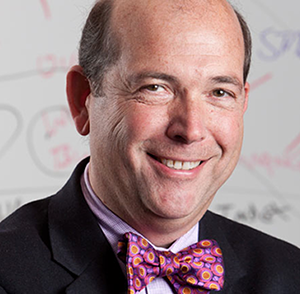

Clients have seen wild volatility rattle their portfolios this year, but that isn’t the first thing they want their financial advisers to address. They want someone to acknowledge their feelings.
“The entire industry has said, ‘My job is to take the emotion out of the money.’ That’s a bunch of nonsense,” said Joseph Coughlin, director of MIT AgeLab, speaking Wednesday at the InvestmentNews Future of Financial Advice Summit.
That doesn’t mean that investment performance isn’t important, as it should be a given, Coughlin said. “Frankly, that is your ticket to admission.”
This year has given advisers more opportunities to check in with clients, and much of that has been more about empathy than finances, he noted.
That people now expect emotional support from their financial advisers seems natural, given the social, political and financial turmoil this year has produced. Many people want someone to serve as a guide in times of crisis. But finance advice has always been a business about relationships, not just about portfolio composition, Coughlin said.
This year, he surveyed 124 advisers in the U.S., Canada and the United Kingdom. “The advisers tell me they are having a lot more emotional touch with their clients,” he said. In calls with clients, “they lean in and say, ‘No, really, how are you doing?’”
People are responding to that well. They appreciate being viewed as fellow human beings living through a difficult time, rather than just as numbers in an account, he said. And there may not be any going back from the norms being established in 2020.
“The new pandemic reset is more face time, more emotions and more touches,” rather than just quarterly phone calls, Coughlin said.
That practice also gives advisers a chance to show that they are in command of the situation, reassuring clients that their financial plan is in good hands, he said.
And now that technology has more of a role in managing assets means that advisers should pay more attention to relating to clients and their families, he said.
“The very best advisers were always good listeners, good conversationalists and good storytellers,” he said.
“I know that you’ve got to move product,” he said. “That’s the business. But the conversation [aspect] now is ever so important. That’s how you truly tease out what goals the clients have.”
Eventually, clients will want to return to occasional in-person meetings, Coughlin said. But they will have new expectations.
“You’re going to be redesigning your office. You’re going to be choreographing experiences, not just meetings,” he said.
For inspiration, advisers should look at how retailers, like Starbucks, Apple and Wholefoods have designed spaces to evoke feelings, he said. “It should be profoundly emotional.”
That will be ever more important for winning business in the future with younger clients who increasingly have higher education levels and are predisposed to doing their own financial planning, he said.
A rise in higher education “gives us this chronic attitude that we believe we could even do our own brain surgery if we had the tools,” he said. “This generation is a royal pain in the neck.”
A necessary component of any financial advice practice will soon be a longevity planning team, which can include a geriatric care manager available to consult.
Birth rates have fallen, and clients who work with financial advisers tend to have higher levels of assets and education, which correlate with life expectancy, Coughlin said. Most clients will likely live past age 85, and some will not have adult children to help support them, he noted.

The move to charge data aggregators fees totaling hundreds of millions of dollars threatens to upend business models across the industry.

The latest snapshot report reveals large firms overwhelmingly account for branches and registrants as trend of net exits from FINRA continues.

Siding with the primary contact in a marriage might make sense at first, but having both parties' interests at heart could open a better way forward.

With more than $13 billion in assets, American Portfolios Advisors closed last October.

Robert D. Kendall brings decades of experience, including roles at DWS Americas and a former investment unit within Morgan Stanley, as he steps into a global leadership position.
Orion's Tom Wilson on delivering coordinated, high-touch service in a world where returns alone no longer set you apart.
Barely a decade old, registered index-linked annuities have quickly surged in popularity, thanks to their unique blend of protection and growth potential—an appealing option for investors looking to chart a steadier course through today's choppy market waters, says Myles Lambert, Brighthouse Financial.
